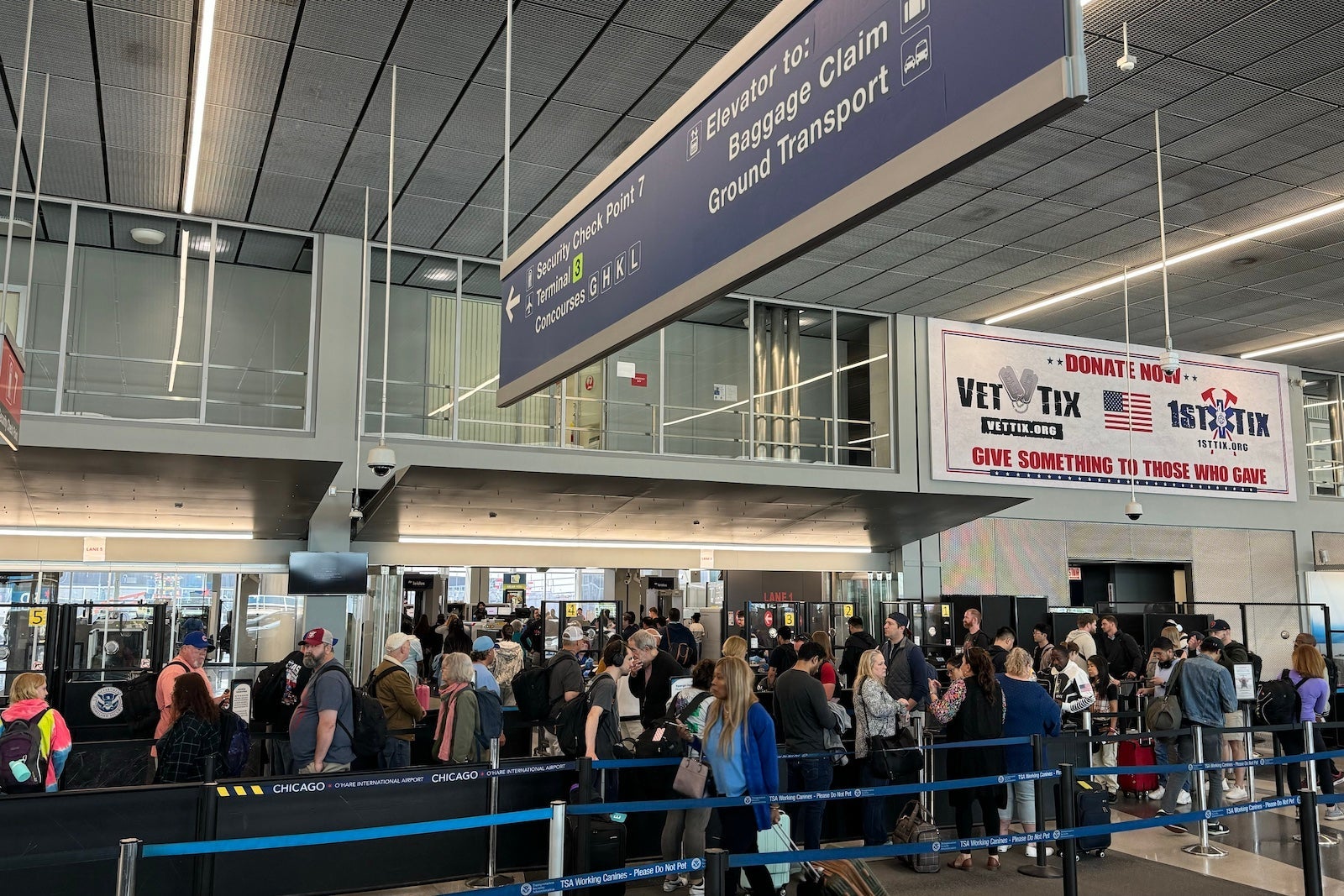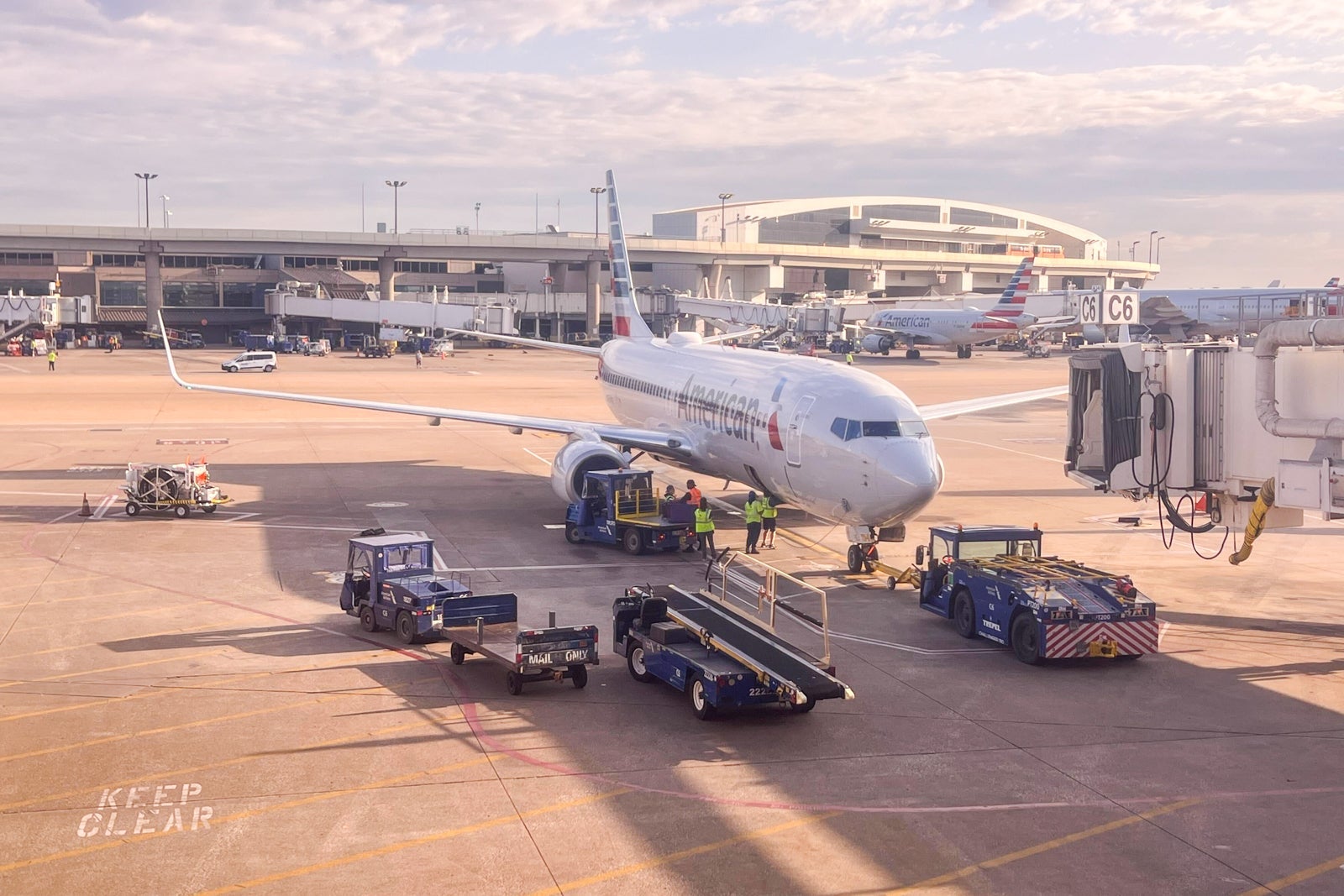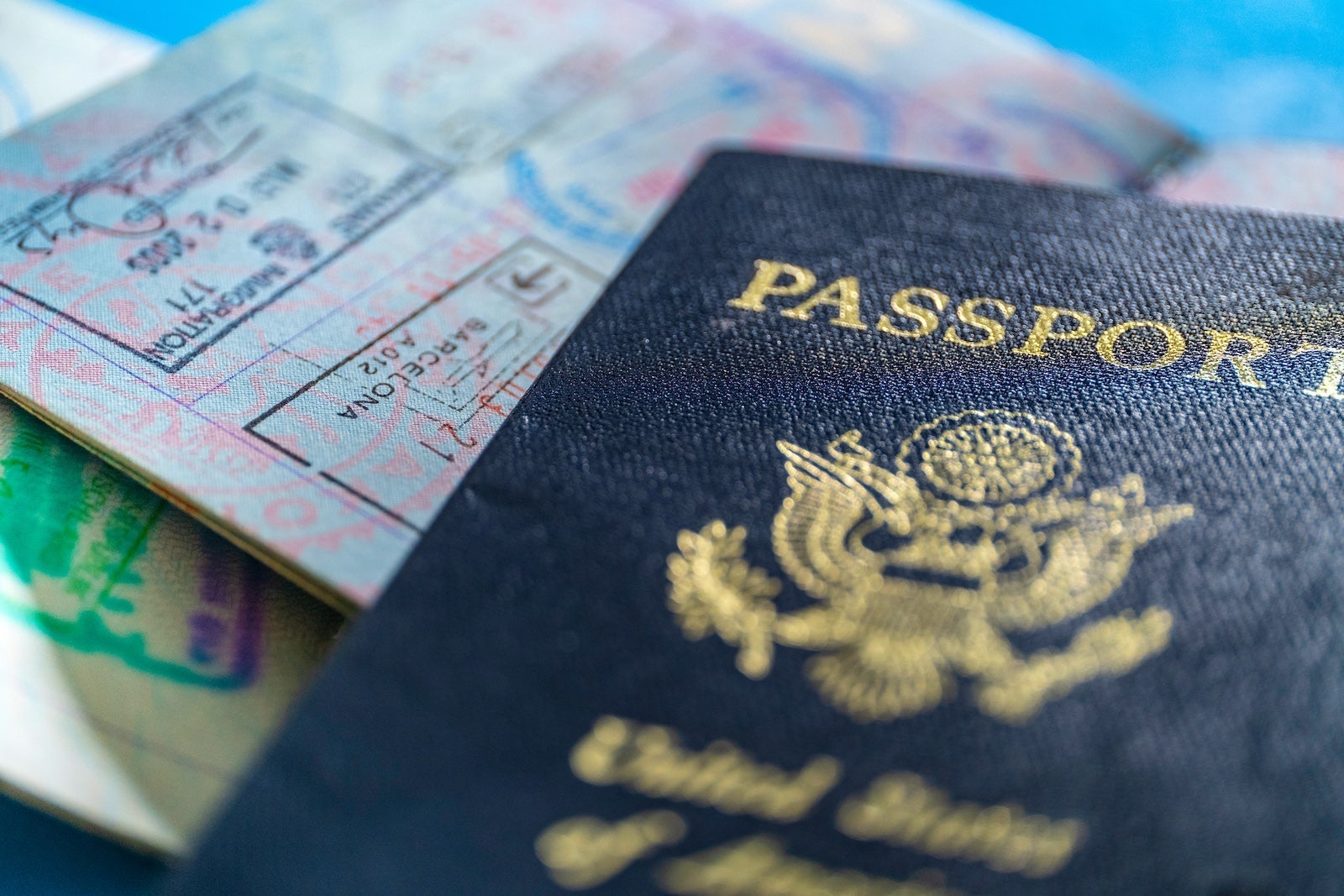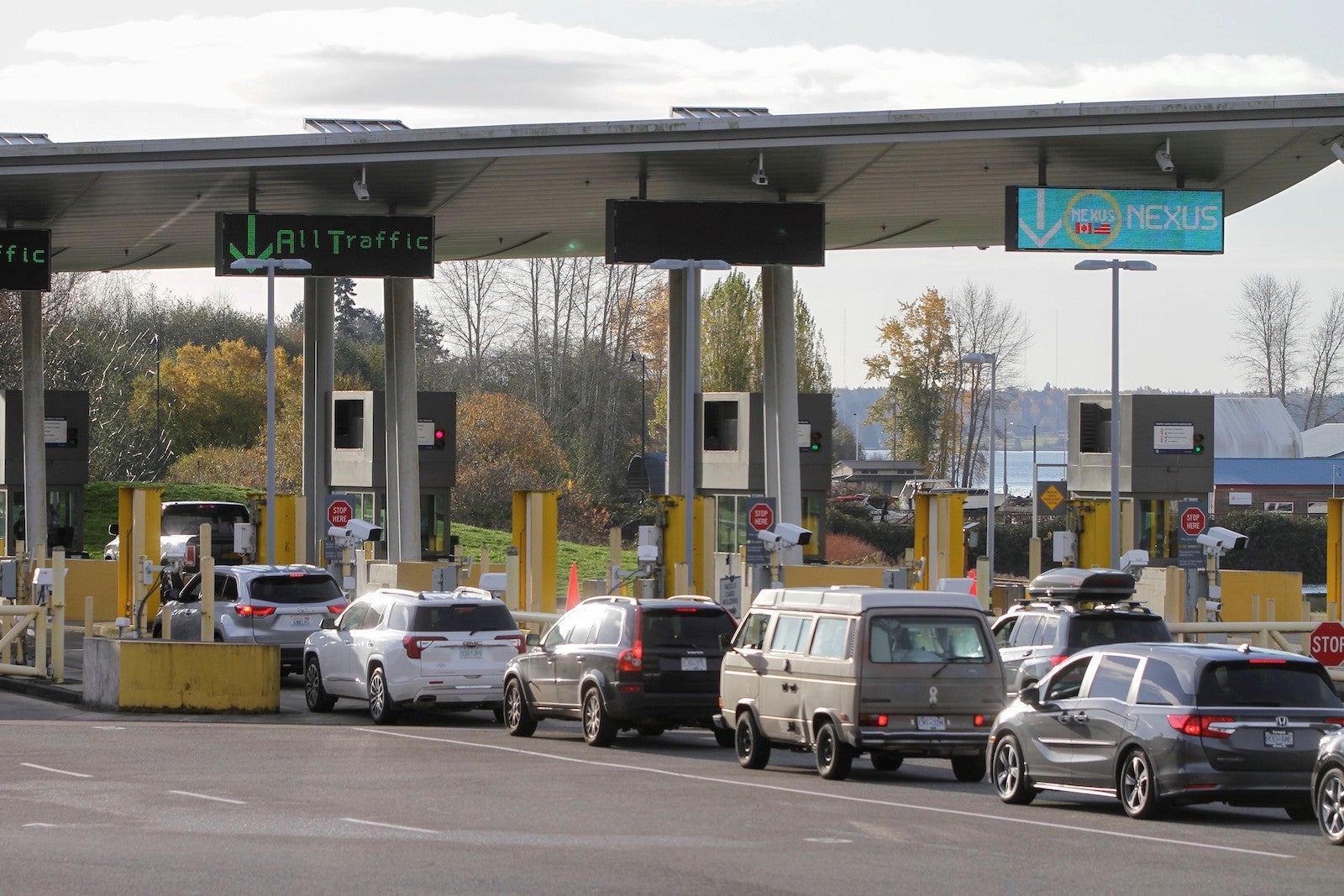
It’s looking increasingly likely that the federal government will shut down without a deal to keep federal funds flowing. This could result in some pretty severe impacts on travel, especially if a shutdown drags on for any great length of time.
So-called nonessential government functions will end at midnight Tuesday if legislators and President Donald Trump can’t strike a deal to keep the government funded. That includes things like training facilities for air traffic controllers, some government office buildings that may house passport offices, national parks and other government institutions.
If a shutdown drags on, airport security could also be affected if some Transportation Security Administration employees working without pay stop showing up. The U.S. Travel Association is suggesting a shutdown could cost the U.S. travel industry some $1 billion every week and affect millions of travelers and businesses.
“Passengers need to prepare themselves for some government-induced turbulence,” said Henry Harteveldt, a travel industry analyst and president of Atmosphere Research.
Here’s what you need to know about the travel impacts.
Airport security

Most federal workers involved with air travel are considered essential, including both the TSA and the Federal Aviation Administration. That means even in the event of a government shutdown, they are supposed to keep working. However, those workers wouldn’t be paid during a shutdown — which could eventually lead to sick calls or no-shows.
Harteveldt told TPG that security screening officers will also face overtime restrictions: “Near term, passengers may notice longer airport security lines, and there is a risk of additional flight delays. If the shutdown lasts for more than a week or two, I’m concerned some TSA airport security workers may quit their jobs in search of employment — and paychecks — elsewhere.”
Air traffic control

Air traffic controllers are also considered essential. That means ATC should technically operate normally; however, there is already a dramatic shortage of ATC workers, which would only be exacerbated in a shutdown.
Absenteeism could present a significant challenge here as well. The FAA is already struggling with labor shortages, which have led to flight cuts at major airports like Newark Liberty International Airport (EWR).
When a government shutdown dragged on for weeks back in 2019, an increased number of air traffic controllers called in sick or fatigued. This led to a temporary shutdown at LaGuardia Airport (LGA) and delays at airports such as EWR, Philadelphia International Airport (PHL) and Hartsfield-Jackson Atlanta International Airport (ATL). This airport crisis ultimately helped end the shutdown, as news shows covered the long lines and travelers pressured lawmakers to strike a deal.
Keep in mind that many ATC support staff members could also be off work, further straining nerves and tempers in control towers. Some support specialists and supervisors who work in control towers will be furloughed. We saw this during the 2018-2019 shutdown.
Yet another problem created by shutdowns is the interruption of training new air traffic controllers, disrupting the training of new, desperately needed ATC recruits. In an opinion piece for The New York Times, Binyamin Appelbaum pointed out that “Repeated disruptions to the F.A.A.’s funding over the last 15 years, caused by shutdowns and other budget fights, have played a key role in preventing the agency from hiring and training enough controllers.”
The U.S. Travel Association sums it up succinctly in its new letter (PDF link) to congressional leaders: “A shutdown exacerbates staffing shortages among Transportation Security Administration officers and air traffic controllers, threatening longer airport security lines, flight delays, and cancellations.”
Passports and Trusted Traveler services

Fortunately, passport services are also considered essential and will continue during the shutdown. Trusted Traveler programs are also expected to continue processing applications; most of these services are funded by fees from applicants.
Still, some passport offices could close if they’re in buildings run by a shuttered government agency. And passport processing could stop altogether if the department runs out of funds from applications and previous fees.
U.S. Department of State employees would also be working without paychecks — so once again, absenteeism could eventually cause delays in processing. A prolonged shutdown could lead to an overall slowdown in passport processing times. If your passport is set to expire, you may want to send in your renewal ASAP.
Fortunately, post offices will remain open. That means passport applications can be filed in person and be mailed off for processing as normal (at least for now).
Border crossings

Border crossings will remain open during any shutdown. Border Patrol — along with much of federal law enforcement — is deemed essential and so will remain open as usual, at least for now. There could be knock-on effects eventually.
What about museums like the Smithsonian?

Many museums in Washington, D.C. — such as the Smithsonian museums, the National Zoo and the National Gallery of Art — are federally funded. They’ll stay open or provide limited access if they’ve set aside reserve funding, but a long-term shutdown could change that quickly.
During the 2018-2019 shutdown, the Smithsonian museums stayed open for an extra 11 days before running out of money and closing. They didn’t reopen until the government reopened.
National parks

The National Park Service relies on government funding, so most workers are temporarily laid off during shutdowns.
While national parks have remained mostly open to visitors in previous shutdowns, most workers are usually furloughed — meaning garbage piles up, bathrooms aren’t cleaned, some trails are closed, and poaching and other illegal activities tend to occur more frequently.
Several dozen former park superintendents have recently advocated for closing national parks in the event of a shutdown. “Past shutdowns in which gates remained open with limited staff have hurt our parks,” they wrote in a letter to U.S. Secretary of the Interior Doug Burgum. They said impacts could be even worse this time because of the layoffs instituted by the Trump administration earlier this year.
However, the administration has not yet commented on what it plans to do with national parks and monuments in the event of a shutdown.
How would a government shutdown affect the travel industry?

While the average American probably won’t see severe travel impacts from a government shutdown immediately, it will still have significant consequences for the industry as a whole.
According to the U.S. Travel Association, the U.S. economy could lose about $140 million a day during a government shutdown, in part due to longer wait times at airports and deferred modernization projects. Additionally, processing times for passports, visas and Global Entry could be longer, which could lead visitors to postpone or cancel travel plans.
“A shutdown is a wholly preventable blow to America’s travel economy—costing $1 billion every week—and affecting millions of travelers and businesses while placing unnecessary strain on an already overextended federal travel workforce,” said U.S. Travel Association president and CEO Geoff Freeman.
Bottom line
There are few winners during a government shutdown — and the longer it drags on, the worse it will be for the traveling public. We strongly advise travelers to pay close attention to the news and be prepared for longer lines at airport security, potential air traffic control delays and longer wait times for things like new passports or other government documents.
Related reading:
Editorial disclaimer: Opinions expressed here are the author’s alone, not those of any bank, credit card issuer, airline or hotel chain, and have not been reviewed, approved or otherwise endorsed by any of these entities.

